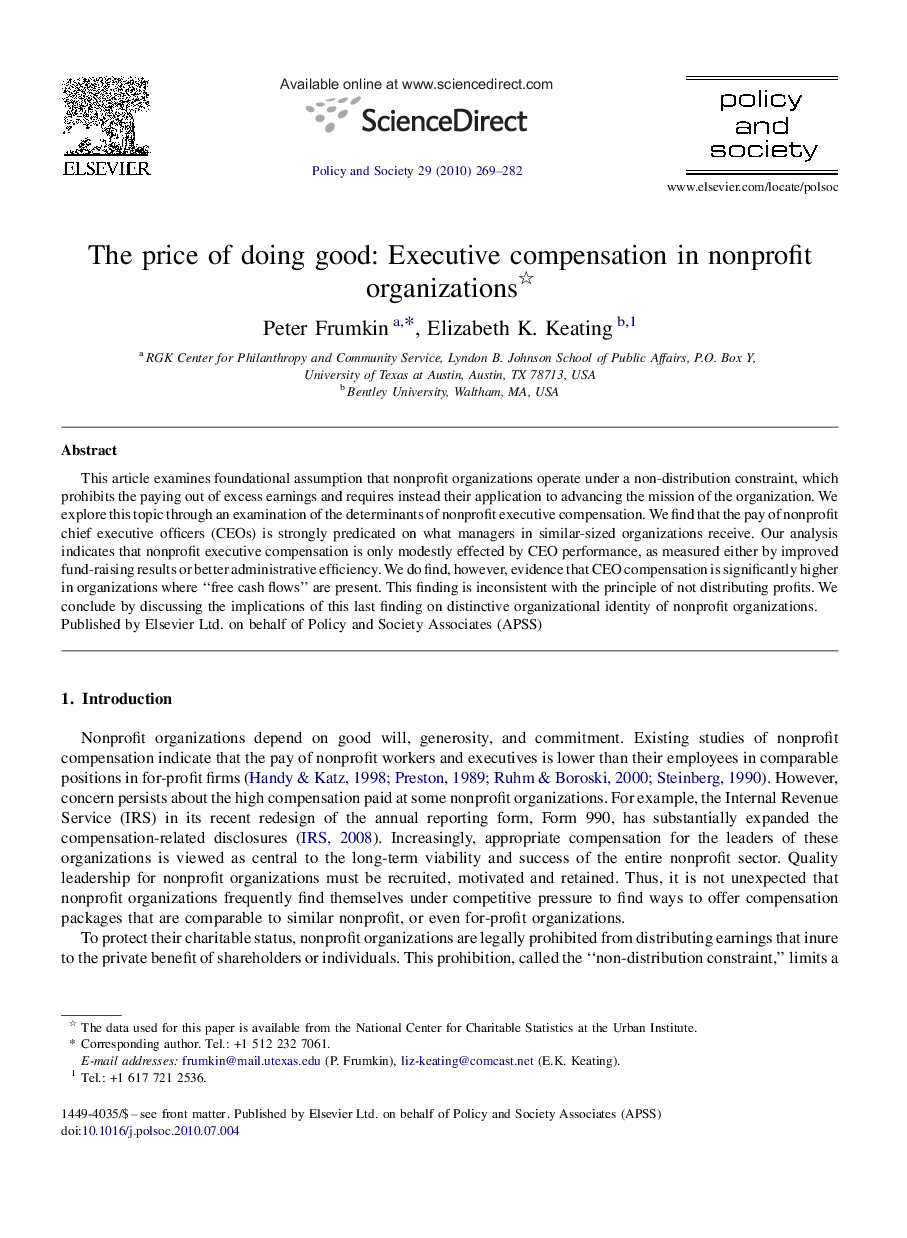| Article ID | Journal | Published Year | Pages | File Type |
|---|---|---|---|---|
| 1061589 | Policy and Society | 2010 | 14 Pages |
This article examines foundational assumption that nonprofit organizations operate under a non-distribution constraint, which prohibits the paying out of excess earnings and requires instead their application to advancing the mission of the organization. We explore this topic through an examination of the determinants of nonprofit executive compensation. We find that the pay of nonprofit chief executive officers (CEOs) is strongly predicated on what managers in similar-sized organizations receive. Our analysis indicates that nonprofit executive compensation is only modestly effected by CEO performance, as measured either by improved fund-raising results or better administrative efficiency. We do find, however, evidence that CEO compensation is significantly higher in organizations where “free cash flows” are present. This finding is inconsistent with the principle of not distributing profits. We conclude by discussing the implications of this last finding on distinctive organizational identity of nonprofit organizations.
